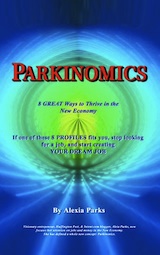The BP oil spill happened in our own backyard within easy view of the news media and reporters who wanted to jump into the thick of it. We have seen the deadly results and heartbreak from every angle and are shocked and moved by what we see. But is it enough to get us to move from inertia into personal action and social change?
BP estimates that 4.6 million gallons of oil have been spilled. By contrast, scientists estimate the spill to date at more than 97 million gallons. While the widespread impacts from this offshore accident seem huge, it is dwarfed by three other massive spills that have gone virtually unnoticed by the news media and the public.
The current issue of Scientific American puts the BP oil spill into global perspective. It perhaps explains why the public seems to be more concerned about the impacts than the government, members of Congress, and those in the oil industry and those who support offshore oil drilling.
Imagine the impact of 140 million gallons of oil. In 1979, 140 million gallons of oil were released into the Gulf of Mexico when Mexico's government-owned Pemex experienced a blowout at its exploratory offshore well IXTOC.
Imagine the impact of 1 BILLION gallons of oil. In 1991, 1 billion gallons of oil were released on land, in the air and into the Persian Gulf, due to the 4-Day Gulf War of President George H.W. Bush. It took more than eight months to put out the intentionally set fires in Iraq's oil fields. Of the 1 billion gallons of oil released, at least 250 MILLION ended up in the Persian Gulf.
Imagine 380. Globally, and annually, 380 million gallons of oil is the estimated annual spillage from natural seeps and regular human activities such as marine transportation and bunker fuels. Bunker fuel is the cheapest oil fuel sold and potentially one of the most polluting in terms of air emissions. In U.S. coastal waters, the annual spillage of oil is 76 million gallons.
Should you and I be worried? Yes. However, what worries me more is public inertia.
This inertia came to light the other day in a coffeehouse debate I had a few days ago with a very bright man, a retiree who also flies his own small airplane.
He scoffed at the idea of offshore wind turbines and towers along the Gulf Coast states including Texas, Lousiana, Mississippi, Alabama, and Florida. In a recent blog, I also talked about electricity generating ocean wave technology.
"There's no wind on the Gulf of Mexico," he challenged. "There is lots of wind close to shore," I countered. "Well cars run on oil," he added. "Electric cars use electric batteries," I responded, then asked if he knew about A Better Place technology, and the goal of Israel to shift the entire country to electric cars by 2015.
Instead of a "filling up the tank" with gasoline, these new technology electric cars simply get a quick exchange of batteries at an Electric Station. A day's worth of used batteries are then sent to wind power stations to be recharged overnight.
Yes, my challenger knew about this. But there was something else on his mind. He took out his iPod and showed me pictures he had taken from his airplane near the Columbia River Gorge in Washington State. "Look at these windmills!" he exclaimed. "They're enormous! And look, they don't seem to be moving."
What he seemed to be implying is that wind towers are an eyesore. I disagree. I think wind and ocean wave energy are an integral part of our future. As the conversation ended, what I didn't say was this: As we change the way we think and stay open to new possibilities, our lives change and expand.
Normam Bel Geddes, a futuristic industrial designer who focused on aerodynamics, describes the process of change this way: "We are too much include to believe that because things have long been done in a certain way that this is the best way to do them... At times, the only thing to do is to cut loose and do the unexpected! It takes more even than imagination to be progressive. It takes vision and courage."
Parkinomics is an Amazon business and motivational bestseller. It offer 8 great ways to thrive in the New Economy, for the individual who wants to lead a life of "meaning, prosperity, and purpose." Parkinomics includes ideas and links to resources.

Alexia Parks offers workshops and online tele-seminars for people in transition to jobs in the New Economy. To learn more, go to AlexiaParks.com. With 61 percent of people wanting to be their own boss, she shows how to tap into your skills and passion to create your DREAM.
